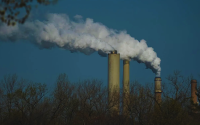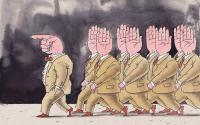24 December 2007Dan Glaister
The US vice-president, Dick Cheney, was behind a controversial decision to block California's attempt to impose tough emission limits on car manufacturers, according to insiders at the government Environmental Protection Agency.
Staff at the agency, which announced last week that California's proposed limits were redundant, said the agency's chief went against their expert advice after car executives met Cheney, and a Chrysler executive delivered a letter to the EPA saying why the state should not be allowed to regulate greenhouse gases.
EPA staff members told the Los Angeles Times that the agency's head, the Bush appointee Stephen Johnson, ignored their conclusions and shut himself off from consultation in the month before the announcement. He then informed them of his decision and instructed them to provide the legal rationale for it, they said.
"California met every criteria ... on the merits," an anonymous member of the EPA staff told the Times. "The same criteria we have used for the last 40 years ... We told him that. All the briefings we have given him laid out the facts."
In an editorial, the New York Times described the decision as, "an indefensible act of executive arrogance that can only be explained as the product of ideological blindness and as a political payoff to the automobile industry".
Johnson said that because Bush signed an energy bill last week which raised fuel economy standards, there was no justification for separate state regulation. The president, the agency said, had provided a "clear national solution" and there was no need for a "confusing patchwork of state rules to reduce America's climate footprint from vehicles".
But Johnson's staff gave him the opposite advice, warning him that should he block California, the state would probably sue him in the courts and would probably win. The state's governor, Arnold Schwarzenegger, immediately announced that he would challenge the EPA's ruling in the courts, describing it as "legally indefensible".
California had wanted to implement a 2002 law limiting greenhouse gas emissions from cars and lorries. Had it been successful, 16 other states had said they would follow suit, effectively creating a national standard that car makers would have been obliged to follow.
http://www.guardian.co.uk/usa/story/0,,2231965,00.html?gusrc=rss&feed=12






